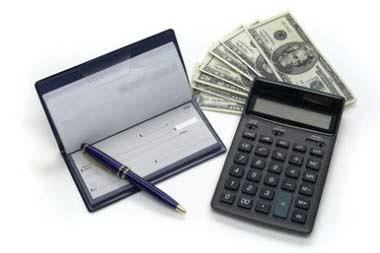Content from USAA
Deep interest rate cuts have many homeowners rushing to refinance their home mortgage loans. And while refinancing can be a budget booster, you need to look beyond low rates to make the decision that's right for you.
The Break-Even Point
A refinanced mortgage pays off your existing loan, replacing it with a new one, so expect to go through the same closing process as you did for your original mortgage. But before committing, examine the deal and calculate your break-even point: How long will it take you to realize the savings you're looking for? Divide the total cost to refinance by the amount you'll save on your new monthly loan payment. The result is the number of months it will take you to recover any refinancing costs:
- Refinance costs (fees, etc.): $2,175
- Monthly savings: $115
- Break-even point: 19 months
"You want to recover refinancing costs while you still own the home," advises Richard Novak, USAA's assistant vice president of real estate product management. "A faster break even is beneficial, but if you know you're going to be in the home for the next 10 to 15 years, taking four or five years to break even is OK."
Use a mortgage calculator to do your preliminary homework, but Novak stresses comparing apples to apples as you shop around. That means getting "good faith" estimates from the top lenders on your list, which will detail all fees and costs associated with each loan offer.
"You will have to do an application for each lender, but it's the only way to see what you're getting. What looks like a competitive deal because of a low interest rate can cost you thousands more in fees, while the lender with the slightly higher interest rate is actually the better deal."
Once you've found a lender, "locking in" a rate ensures that you'll get the rate quoted on the day you lock it in, even if you don't close for several months. You're protecting your deal in case rates go back up, but if rates continue to go down, you're committed to your locked-in rate. Some lenders charge a lock-in fee -- generally the longer the lock-in period, the higher the fee.
Refinancing Benefits
There are plenty of benefits in refinancing including:
- A lower monthly payment. Refinancing with a lower monthly payment allows you to re-direct more of your income to other expenses and priorities.
- More equity, faster. If you have a 30-year note today, switching to a 15-year loan will quickly increase your ownership stake in the home. Although your monthly payment may be a bit higher, paying down your loan and building equity faster gives you added security, no matter which direction the real estate market turns.
- Access to cash. If you are able to refinance for more than the amount owed, you can use that cash for major expenses including home improvements, college or to consolidate debt.
- Switch loan types. If you have an adjustable rate mortgage or other type of unconventional loan, you can find a mortgage that's better suited to your needs.
- Eliminate PMI. If your loan balance is less than 80 percent of your home's value, private mortgage insurance (PMI) is usually not required. Removing it from your loan can add up to big savings.
Get Started Today
Our VA loan finder can match you with up to five rate quotes from different lenders. Check it out now!










